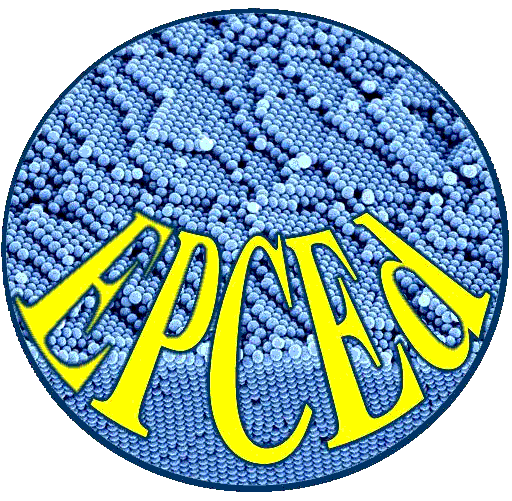EPCEd Faculty Profiles
Emulsion Polymers Consulting and Education
EPCEd.com The Value of Experience - The Power of Knowledge
Copyright 2011-2023 by EPCEd
Professor Donald C. Sundberg has been working in the field of emulsion polymers for 49 years. He received a bachelor's degree in chemical engineering from Worcester Polytechnic Institute (Massachusetts) and his Ph.D. from the University of Delaware. He worked on latex based impact modifiers for ABS resins with the Monsanto Company, scaling processes to the 10,000 gallon reactor size. He has extensive research experience in emulsion polymerization and is widely recognized for his work on structured latex particles. This has resulted in nearly 100 peer reviewed publications and many conference papers. In addition he has conducted many workshops, most notably the one on latex particle morphology control, now in its 10th annual offering. He spent a sabbatical year at the Institute for Surface Chemistry in Stockholm and was Chair of the Gordon Research Conference on Polymer Colloids. He maintains active research interests in polymerization kinetics in solution, bulk and emulsion systems, interfacial science and polymer morphology control, diffusion in polymers, microencapsulation, coatings, and controlled release technology. He is an Emeritus Professor of Materials Science at the University of New Hampshire and is the founder of Emulsion Polymers Consulting and Education, LLC. (all workshops)
Professor Michael F. Cunningham of Queen’s University, Kingston, Ontario, has an extensive background in dispersed phase polymerizations, including suspension, emulsion, miniemulsion and dispersion polymerization. He spent six years working on dispersed phase polymerizations in the Xerox Corporate Research Group, acquiring experience in process scaleup and technology transfer to manufacturing. He has an active research program in polymer colloids and emulsion polymerization, particularly in the area of living radical polymerization, publishing over 100 papers and holding 26 U.S. patents. (Scale-up and Commercial Production of Emulsion Polymers)
Professor Raymond H. Fernando has been the Arthur C. Edwards Endowed Chair and Director of Polymers and Coatings Program within the Department of Chemistry and Biochemistry at California Polytechnic State University since 2002. He has fifteen years of industrial experience in coatings, with extensive knowledge in waterborne technology. His current research at Cal Poly includes understanding nanoparticle reinforcements of coatings, impact of coating raw materials on rheology, and low VOC coatings. Dr. Fernando has many publications and patents, and has given numerous lectures and presentations related to coatings science and technology. (Rheology Fundamentals & Applications for Synthetic Latices and Associated Coating Formulations)
Professor W. Marshall Ming is the Distinguished Chair in Materials Science and a Full Professor in Chemistry at Georgia Southern University. He earned his PhD in Polymer Chemistry and Physics from Fudan University in Shanghai in 1998, and a B.S. in Materials Chemistry from the same school in 1993. Dr. Ming’s primary research has focused on multifunctional, nanostructured polymer materials and coatings, including super-repellent coatings, antimicrobial coatings, antibioadhesion coatings, antifogging/frost-resisting coatings, smart coatings for metal corrosion detection and preemptive protection, self-healing polymers, and polymer hybrid composites. He received a First-place Roon Award from American Coatings Association in 2012. (Hybrid Latex Systems)
Dr. Jeffrey M. Stubbs is a Senior Research Scientist at DSM NeoResins in Wilmington, Massachusetts where he works on acrylic latices and polyurethane dispersions. He spent 10 years at the University of New Hampshire with an emphasis on the factors controlling composite particle morphology development. He received his B.S. and M.S. degrees in chemical engineering, and his PhD in materials science from UNH. His areas of active research include control of composite latex particle morphology, emulsion polymerization kinetics, diffusion in polymers and adsorption of surfactants on latex particles. (Core-Shell Latex Particles – Fundamental Aspects of Morphology Control)
Professor John G. Tsavalas is an Associate Professor of Chemistry at the University of New Hampshire, the director of the Nanostructured Polymers Research Center, and the deputy director of an interdisciplinary multi-department research center at UNH centered around Advanced Materials (CAMMI). He received his PhD in Chemical Engineering from The Georgia Institute of Technology (Atlanta, GA, USA) after which he was a Senior Research Scientist in The Dow Chemical Company (Midland, MI USA). In industry he worked on a wide variety of polymer colloid related R&D with particular emphasis on nanostructured latex particles. At the University of New Hampshire, Professor Tsavalas’ current active areas of research are colloidal nanostructure morphology development, sustainably derived polymer colloids, the interaction and distribution of water in polymer colloids, and dynamic modeling of interactions, kinetics, diffusion, and phase separation in colloidal systems. (Core-Shell Latex Particles – Fundamental Aspects of Morphology Control & Hybrid Latex Systems)
